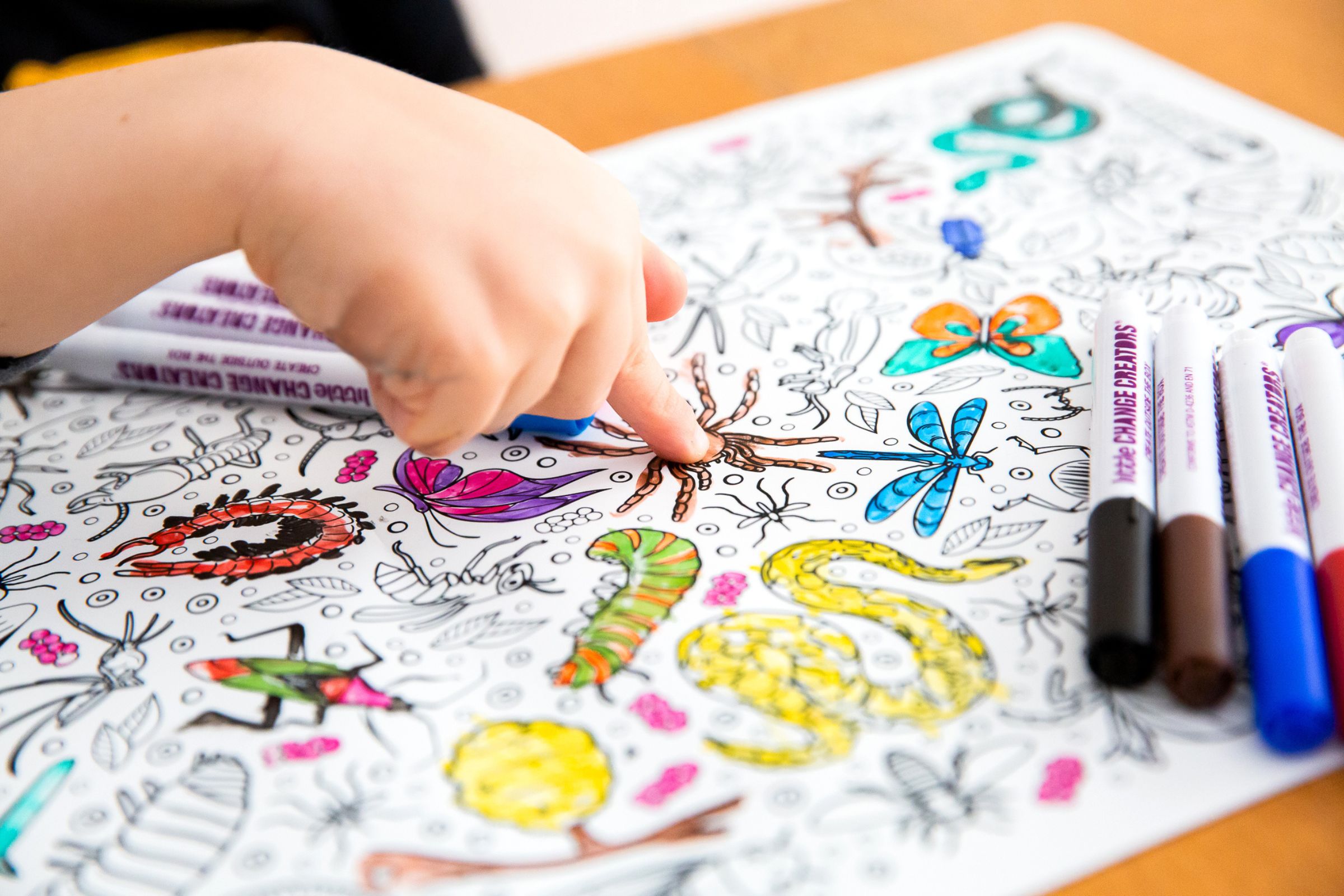Fine motor skills are like the hidden superpower of childhood development – they help kids to control movements with their hands and fingers, leading to improved dexterity and coordination. While it may not sound exciting, the development of fine motor skills is crucial for your child’s growth and success in various aspects of life, from everyday tasks to creative development. As parents, it’s essential to nurture and support the development of these skills from an early age. So, let’s take a look at fine motor skills and the ways you can help your child unlock their full potential.
Why Are Fine Motor Skills Important?
Fine motor skills involve the small muscles in the hands and fingers, and they play a vital role in tasks that require precision and control. These skills are essential for everyday activities such as writing, cutting with scissors, tying shoelaces, buttoning clothes, using utensils, and even brushing teeth. Without well-developed fine motor skills, kids may struggle with these tasks, which can affect their confidence and independence.
Moreover, fine motor skills are closely linked to cognitive development. The co-ordination and control required for precise hand movements support brain development and enhance problem-solving abilities. Research has shown that children with strong fine motor skills tend to perform better academically and show improved focus and attention.
Building Fine Motor Skills Through Play
Engaging in play activities that specifically target fine motor skill development is a fun and effective way to support your child’s growth. Here are some ideas to get you started:
Play with Building Blocks: Building blocks provide an excellent opportunity for kids to practice their hand-eye coordination and finger dexterity. Encourage your child to build towers, houses, or whatever they imagine, using various sizes and shapes of blocks.
Playdough and Clay Fun: Playing with playdough or clay is a fantastic sensory activity that helps to strengthen hand muscles and refine finger movements. Let your child mould and shape different objects, encourage them to roll small balls, create patterns, or even make pretend food.
Threading Beads: Threading beads onto string is a wonderful way to improve hand-eye coordination and fine motor skills. Start with larger beads and gradually move to smaller ones as your child’s skills progress.
Puzzles and Manipulative Toys: Jigsaw puzzles and manipulative toys that require twisting, turning, or fitting objects together can help enhance fine motor skills while keeping your child engaged and entertained.
Arts and Crafts: Art activities offer kids so many benefits, including relaxation, creative development and enhancing fine motor skills. Drawing, colouring and cutting with scissors all contribute to fine motor skill improvement. Encourage your child to create their own artwork using a variety of materials and let their imagination run wild.
Supporting Fine Motor Skills Development At Different Ages
Understanding your child’s abilities and expectations at each age can guide you in providing appropriate activities and challenges. Here’s a breakdown of what you can expect at different stages:
Ages 2-3: At this stage, kids are refining their grasp and exploring different hand movements. Chunky crayons and washable markers are ideal for them to scribble without staining clothes and tables. Stacking blocks and toys with buttons and switches are also great for this age.
Ages 4-5: Children in this age group are developing more control over their hand movements. They can copy basic shapes, cut with safety scissors, and manipulate smaller objects. Encourage them to engage in activities that involve tracing, threading beads, and playing with smaller building blocks.
Ages 6 and beyond: As children grow older, their fine motor skills continue to improve. They can write with more control, tie shoelaces, use tools like rulers and pencil-sharpeners, and engage in intricate crafts. This is the perfect time to challenge their creativity and refine their abilities with activities that require precision, such as model building, mindful colouring and playing musical instruments.
Little Change Creators’ Re-FUN-able™ Colouring Sets are a valuable tool for enhancing children’s fine motor skills and hand-eye co-ordination. These innovative sets offer reusable surfaces that can be wiped clean, allowing children to practice their colouring and drawing skills again and again without waste. The gender-neutral designs and non-stick surface is also perfect for crafts, games, messy play, and even mealtimes.
Nurturing Fine Motor Skills Through Everyday Life
Fine motor skill development doesn’t have to be limited to specific activities or playtime. You can incorporate these skills into your family’s daily routines. Here are some ideas:
Encourage Self-Help Tasks: Encourage your child to dress themselves, button their shirts, tie their shoes, and brush their teeth independently. These activities strengthen hand muscles and promote hand-eye coordination.
Cooking and Baking Together: Involve your child in simple cooking and baking tasks that require stirring, pouring, kneading dough, or using cookie cutters. These activities provide excellent opportunities for practicing fine motor skills while having fun in the kitchen.
Sensory Play: Fun sensory activities, like building sandcastles, making slime or playing with putty, engage multiple senses and enhance hand co-ordination and finger strength.
Unlocking Your Child’s Full Potential
By nurturing and supporting the development of your child’s fine motor skills, you’re setting them up for success at school and beyond. Fine motor skills are not just about completing tasks; they’re building blocks for your child’s overall growth and cognitive development. So, now that you’ve a better understanding of fine motor skill development and why it’s so important, you can invest in appropriate tools and activities to support their growth and unlock their full potential. Enjoy the journey as they blossom into confident and capable individuals!






